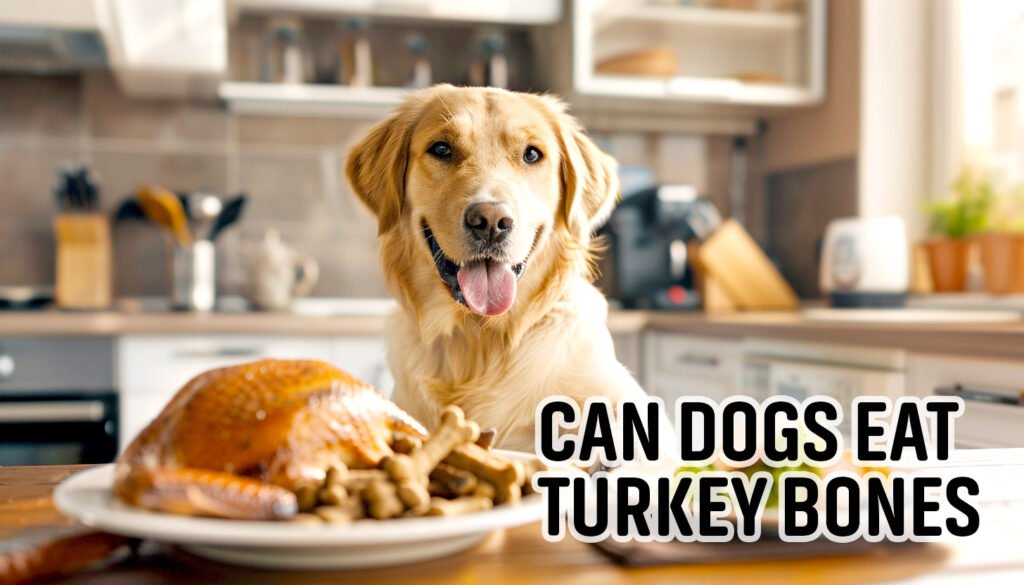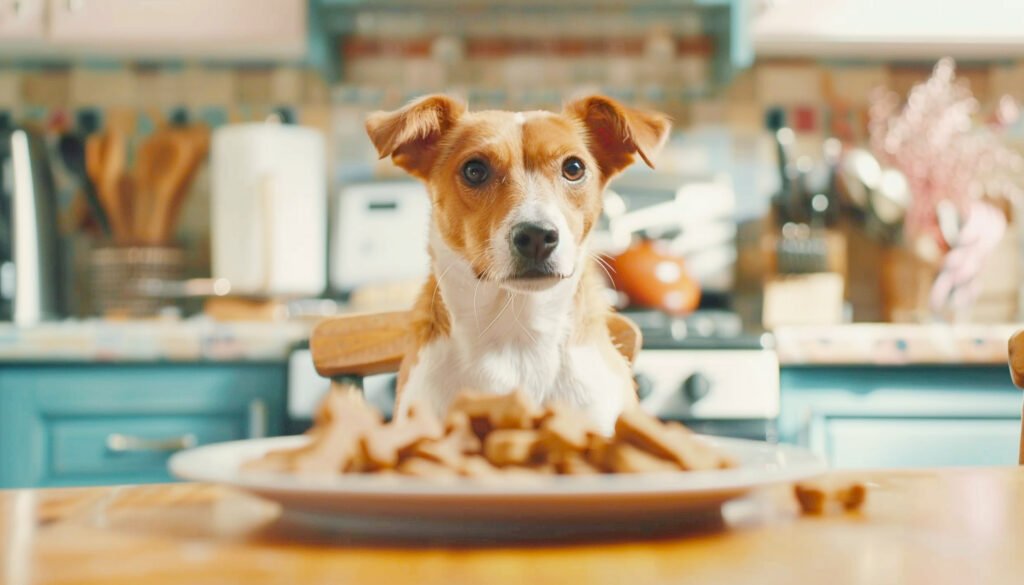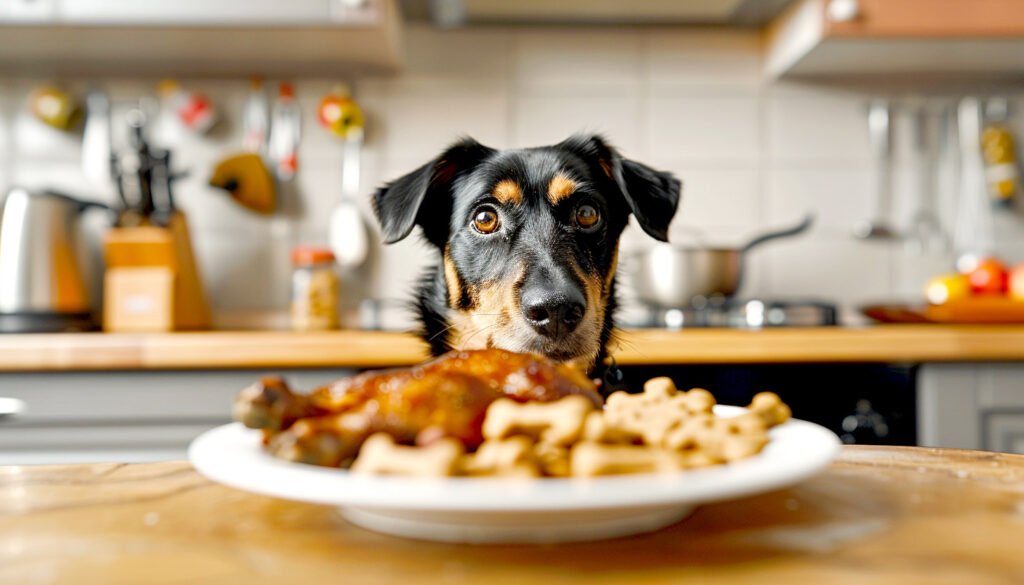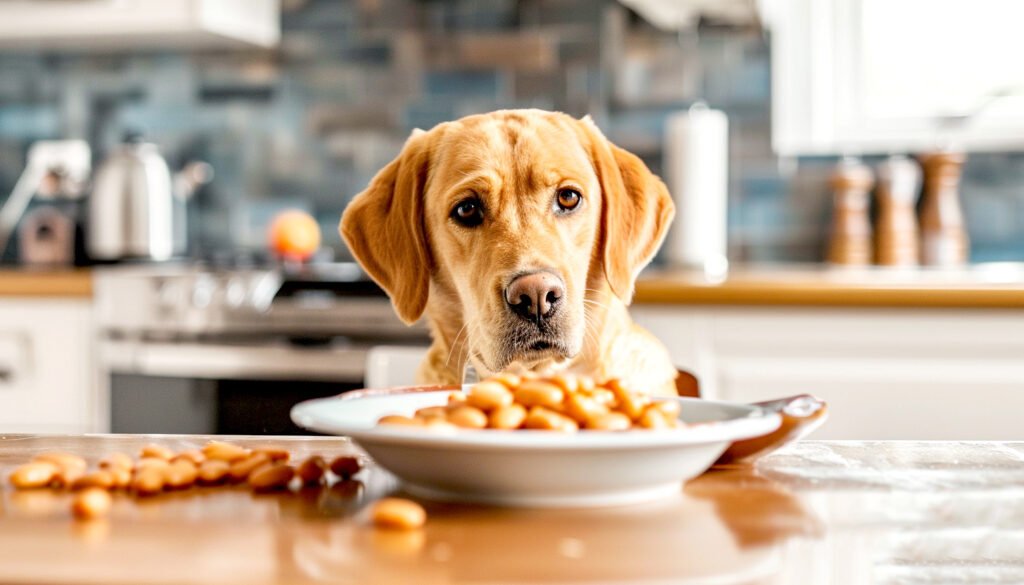The question “Can Dogs Eat Turkey Bones?” is one many pet owners ponder as they consider sharing their holiday meals. While it’s common to think of bones as a natural element of a dog’s diet, not all bones are safe for canine consumption. Turkey bones, especially those cooked, can pose serious health risks to dogs. These bones can easily splinter and crack, leading to potential injuries or obstructions within a dog’s digestive system.
Pet owners should consider risks when planning holiday feasts. Keep pets’ health and safety a top priority. Understand dangers, take precautions, and ensure dogs’ well-being during celebrations.
Contents
Nutritional Value Of Turkey Bones
Turkey bones, like those of other poultry, can offer certain nutritional benefits for dogs under the right conditions. They are a natural source of calcium and phosphorous, essential elements for maintaining strong bones and healthy teeth.
Additionally, marrow in turkey bones has beneficial fats, omega-3 fatty acids, vitamins, and minerals that support a dog’s coat and immune system. The way bones are served to dogs affects their safety and nutritional value.
However, it’s crucial to differentiate between raw and cooked turkey bones. Raw turkey bones are softer and less likely to splinter, making them safer for dogs. They help with oral health by removing plaque and keeping teeth clean. Cooked turkey bones, on the other hand, are brittle and can fragment into sharp pieces, causing harm if ingested. This includes choking, blockage, or intestinal perforation.

Can Dogs Eat Turkey Bones?
The short answer is no; dogs should not eat turkey bones, especially if they are cooked. Cooked turkey bones can easily splinter when chewed, posing a significant risk of causing internal punctures or blockages in a dog’s digestive tract. These injuries can be severe, leading to emergency surgery or, in the worst-case scenario, death.
Furthermore, even raw turkey bones carry risks, including the potential for bacterial contamination or causing dental issues like broken teeth. Therefore, while the temptation to give your dog a special treat during the holidays may be strong, it is safer to avoid feeding them turkey bones altogether. There are plenty of safe, dog-friendly alternatives to ensure they don’t miss out on the festive spirit.
Recommended Safety Measures
If you do choose to give your dog turkey bones, there are several essential precautions to take. Firstly, always supervise your dog when they are chewing on a bone and remove any small pieces that could pose a choking hazard. Additionally, only give them raw, uncooked bones from reputable sources.
Avoid cooked or leftover bones. Also, steer clear of bones in store-bought turkey products like deli meats. They may have harmful seasonings and preservatives for dogs. Consult your vet before introducing new foods, especially if your dog has digestive issues or is on a special diet.
The Dangers of Turkey Bones for Dogs
Cooked Bones vs. Raw Bones
Many dog owners may wonder about the difference between cooked and raw turkey bones. Turkey bones, when uncooked, are soft and pliable, making them less likely to splinter. However, when these bones undergo the cooking process, they become brittle and may break into sharp fragments, posing significant health risks if ingested by your pets.
Potential for Choking
One of the foremost concerns with any bone ingestion is the possibility of choking. Cooked turkey bones can easily splinter, leaving sharp edges that present a choking hazard as they are often small enough to be swallowed whole.
Intestinal Blockages
Even if the bone is broken down to a size that the dog can swallow, it can still be a hazard once inside the body. Sharp pieces or large chunks have the potential to cause intestinal blockages, a condition that’s not just painful but is also life-threatening and often requires surgery to correct.
Oral Injuries
The brittle nature of cooked turkey bones also increases the risk of oral injuries. In addition to the potential for splinters to get lodged in the throat, the act of chewing on hard, sharp bones can cause lacerations inside the mouth.

Safe Alternatives and Precautions
Dog-Safe Holiday Treats
While it’s best to steer clear of turkey bones, there are many other holiday treats that you can safely share with your dog. Pets can enjoy bites of plain turkey meat, unseasoned and boneless, as an occasional treat. Other safe, dog-friendly alternatives include plain pumpkin, carrots, or sweet potato, prepared without any additional seasonings.
Preparing Turkey for Dogs
If you’re intent on sharing some of your turkey with your canine companions, take the following precautions before serving:
- Remove all bones, skin, and fat. Skin and fat can be difficult to digest and may even lead to pancreatitis in some cases.
- Serve the meat to your dog in plain, small portions. Feeding large quantities of human food, even without bones, can upset your pup’s stomach.
- Avoid using any seasonings, including salt, garlic, onion, and spices, that can be harmful to dogs.
Signs of Bone Ingestion and What to Do
Recognizing the Issue
It’s essential to be vigilant for any signs that your dog may have ingested a turkey bone. Common symptoms can include:
- Excessive drooling
- Vomiting
- Bloody stool
- Straining during bowel movements
- Lethargy
- Abdominal pain or swelling
Next Steps
If you suspect your dog has consumed a turkey bone and is exhibiting any of the aforementioned symptoms, it’s crucial to act quickly:
- Contact your veterinarian immediately.
- Refrain from inducing vomiting, as this can worsen any potential injuries.
- Follow your vet’s guidance, which may involve closely monitoring your dog or seeking emergency treatment.
Conclusion: Can Dogs Eat Turkey Bones?
The holiday season is a time for joy and togetherness, and our pets are at the heart of many families. While it’s tempting to include your dog in the holiday feasting, it’s essential to do so responsibly. Ensure that the treats they enjoy are free from any potential hazards, including the bones of your celebratory bird. A little care goes a long way in ensuring a safe and happy season for all.
As caregivers to our pets, we bear the duty of guaranteeing the safety and welfare of our beloved furry friends.. While sharing holiday meals with them can be a delightful experience, it’s crucial to be mindful of any potential dangers that certain foods may pose. By understanding the risks and taking necessary precautions, we can all enjoy a safe and happy holiday season with our dogs by our side.
Let’s make sure to keep them healthy and happy for many more celebrations to come. So next time you’re carving that delicious turkey, remember to keep the bones away from your furry friends and opt for safe alternatives instead. And if any accidental ingestion does occur, don’t hesitate to seek veterinary assistance immediately.
FAQs (Frequently Asked Questions)
Q1: Can dogs eat turkey bones?
It is strongly recommended to avoid giving dogs turkey bones. Cooked turkey bones can splinter and pose serious health risks, including choking, intestinal blockage, and oral injuries. If you do decide to give your dog a turkey bone, it should only be raw and under strict supervision.
Q2: What are the signs that my dog might have ingested a dangerous bone?
Be on the lookout for signs such as excessive drooling, vomiting, bloody stool, difficulty or straining during bowel movements, lethargy, abdominal pain, or swelling. These symptoms could indicate that your dog has ingested a bone and is experiencing complications.
Q3: What should I do if I think my dog has eaten a turkey bone?
Contact your veterinarian immediately. Do not attempt to induce vomiting as this can cause further harm. Follow your vet’s advice, which might include closely monitoring your dog or seeking emergency treatment.
Q4: Are there any safe alternatives to turkey bones for dogs during the holidays?
Yes, there are many safe alternatives to turkey bones for dogs. Consider giving your dog bits of plain, cooked, boneless turkey meat, unseasoned pumpkin, carrots, or sweet potato. Gradually and moderately introduce new foods into your dog’s diet at all times.
Q5: How can I safely include my dog in holiday meals?
To safely include your dog in holiday meals, ensure any food shared is boneless, skinless, fat-trimmed, and free from harmful seasonings like salt, garlic, onion, or spices. Offer these in small, manageable portions as a treat rather than a meal replacement. Always consult with a veterinarian if you’re unsure about introducing new foods to your dog’s diet.
For more dog nutrition and health information, check this article: Can Dogs Eat Scallops Safely?



